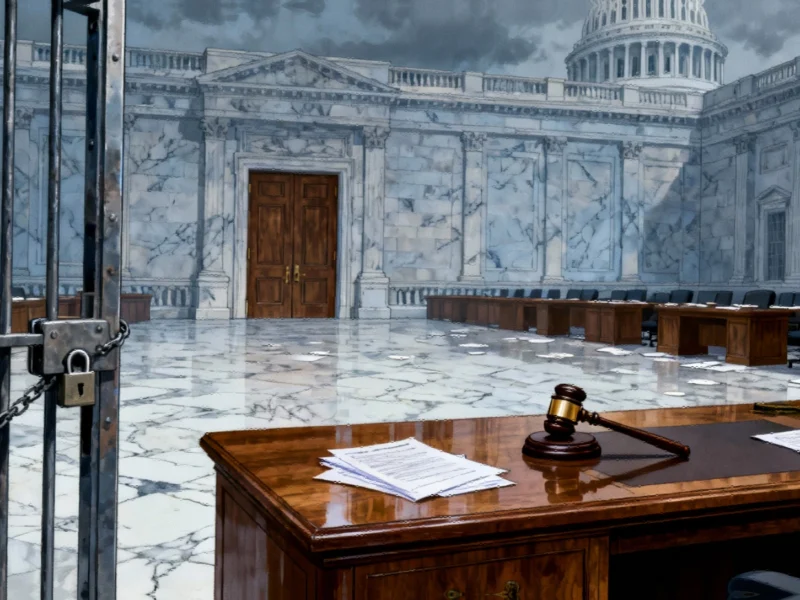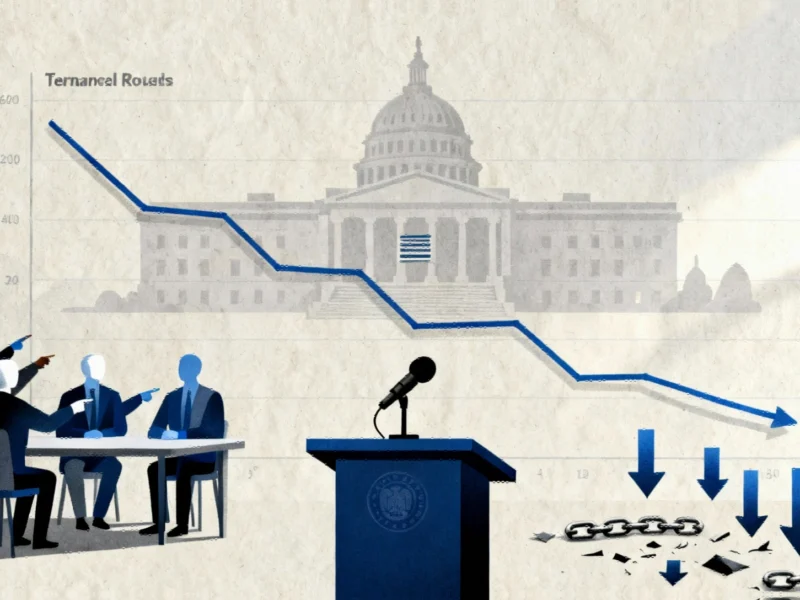Trust Deficit Halts Traditional Negotiation Tactics
As the federal government shutdown enters its third week, Washington insiders note the conspicuous absence of bipartisan “gangs” – the informal groups of lawmakers that have historically broken legislative impasses. Democratic lawmakers explicitly point to a fundamental distrust of President Trump as the primary reason these traditional negotiation mechanisms have failed to materialize.
“When the chief executive demonstrates repeated disregard for established norms and previous agreements, what value does a negotiated compromise hold?” questioned Senator Richard Blumenthal (D-CT), capturing the sentiment prevailing among congressional Democrats. This trust deficit has created unprecedented challenges in finding a pathway to reopen government operations.
Historical Precedent Versus Current Reality
Bipartisan gangs have previously served as crucial negotiation vehicles during legislative standoffs. These informal groups typically build foundational agreements that later receive endorsement from party leadership and broader congressional approval. The current shutdown, already exceeding most historical precedents in duration, marks a significant departure from this established conflict-resolution pattern.
While some bipartisan negotiations have occurred regarding healthcare provisions, particularly the expiring enhanced premium tax credits under the Affordable Care Act, these discussions haven’t coalesced into structured working groups. Senator Josh Hawley (R-MO) confirmed engaging with Democratic colleagues but noted the absence of formalized discussions.
Broader Economic Implications
The political stalemate occurs against a backdrop of significant market dynamics affecting multiple sectors. Manufacturing industries face particular uncertainty, with production schedules and supply chains potentially impacted by the ongoing governmental paralysis.
Meanwhile, the automotive sector confronts separate challenges, including questions about facility operations like the Stellantis Brampton plant whose future depends on trade agreements that could be affected by prolonged congressional inaction.
Technology and Industrial Sectors Feel Ripple Effects
Industrial technology sectors monitor the situation closely, as government contracts and regulatory approvals face delays. The global auto industry already preparing for potential semiconductor shortages must now account for additional uncertainty stemming from the Washington standoff.
Concurrently, businesses across sectors are implementing data quality breakthroughs to navigate an increasingly complex operational environment, though these innovations face headwinds from political instability.
Workplace and Employment Considerations
The shutdown’s effects extend to employment practices, with human resources departments adjusting to both the immediate impacts of furloughed workers and broader employment law shifts that continue reshaping hiring practices regardless of political developments.
As the impasse continues, observers note that the absence of traditional negotiation mechanisms reflects deeper structural challenges in Washington. The failure of bipartisan gangs to form represents not merely a tactical difference but a fundamental transformation in how legislative business gets conducted – or fails to get conducted – in an era of heightened political polarization.
With no clear path toward resolution evident, industry leaders are watching for related innovations in political negotiation while bracing for extended uncertainty across multiple sectors of the economy.
This article aggregates information from publicly available sources. All trademarks and copyrights belong to their respective owners.



